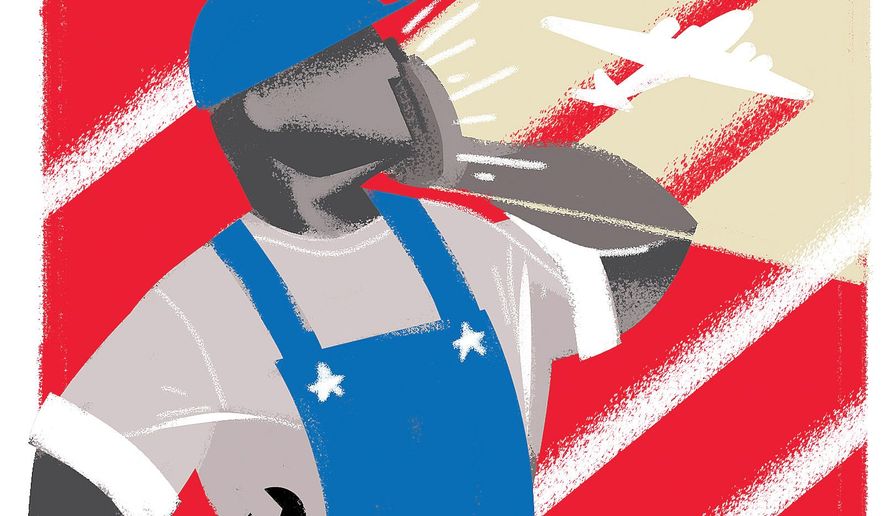OPINION:
Presidents are judged by how they stand up for the American people. Whether it is protecting U.S. jobs or safeguarding our industries and our jobs from foreign trade cheating, we expect our presidents to act in the best interests of Americans.
That was one of the defining principles of President Reagan’s administration, and I was proud to put his agenda into action as his secretary of Transportation. Today, I see that same vision coming from the Trump administration. In less than 18 months, President Trump has shown the world that he will always be a voice for the American worker.
This week, that voice got louder. On Monday, the Trump administration announced a historic agreement with the United Arab Emirates (UAE) over its Open Skies violations. For more than a decade, the UAE subsidized its airlines — Emirates and Etihad Airways — to the tune of more than $25 billion. Those subsidies violate the UAE’s Open Skies agreement with the United States, a bilateral treaty that allowed airlines from the two countries to travel back and forth without restrictions or government interference.
Beyond the blatant trade cheating, the UAE’s subsidies put 1.2 million American jobs in jeopardy. These are workers who rely on a strong U.S. airline industry — an industry that for decades has been a symbol of the strength and vibrancy of the American economy. To allow it to crumble because of foreign trade violations would be unfathomable.
Fortunately, Mr. Trump acted decisively. His administration’s agreement with the UAE requires it to commit to unprecedented transparency measures — from engaging in transactions based on commercial terms to meeting new, tough financial disclosure standards. The UAE also agreed to freeze additional “fifth freedom” flights to the United States — routes that take passengers between two countries without stopping in the carrier’s home country.
Peter Navarro, director of the White House National Trade Council, put it more succinctly: “There will be no additional routes into the United States until further notice.”
Additionally, the UAE acknowledged for the first time that government subsidies hurt competition. After years of denying the dangerous effects of its subsidies, this is without question a historic moment.
It comes just a few short months after the Trump administration negotiated a similar agreement with Qatar over its subsidization of Qatar Airways. Collectively, these agreements represent the most significant progress on this issue in over a decade.
Throughout this fight, U.S. airlines, unions and the hundreds of thousands of workers they represent have been supported by more than 310 members of Congress, more than a dozen governors and hundreds of local officials and business leaders. They are Republicans and Democrats. They come from every corner of the country, rural and urban areas alike.
What they share is a desire to see a strong U.S. airline industry. When that happens, U.S. airline workers can pay off their mortgages, send their children to college and save for retirement. And U.S. travelers get more choices and better options for international travel, which in turn, allows U.S. carriers to service small and mid-sized communities around our great country.
But the work is far from over. Everyone must remain vigilant — from our elected officials to aviation leaders to the men and women whose jobs were threatened. We can expect the Trump administration to make sure the UAE and Qatar uphold the agreements — and take a dim view of any attempt to shirk their commitments. In announcing this deal, Mr. Navarro was clear: “What we expect moving forward is transparency, full accounting, stopping of subsidies and a freeze on routes until further notice.”
After years of inaction by the Obama administration to hold the UAE and Qatar accountable, we are finally seeing real progress from the Trump administration. Just like Mr. Reagan, Mr. Trump has positioned himself as a strong defender of American workers. For that, he deserves our high praise.
• James H. Burnley IV was the U.S. secretary of Transportation under President Ronald Reagan. He is a partner at Venable LLP and an adviser to American Airlines.




Please read our comment policy before commenting.